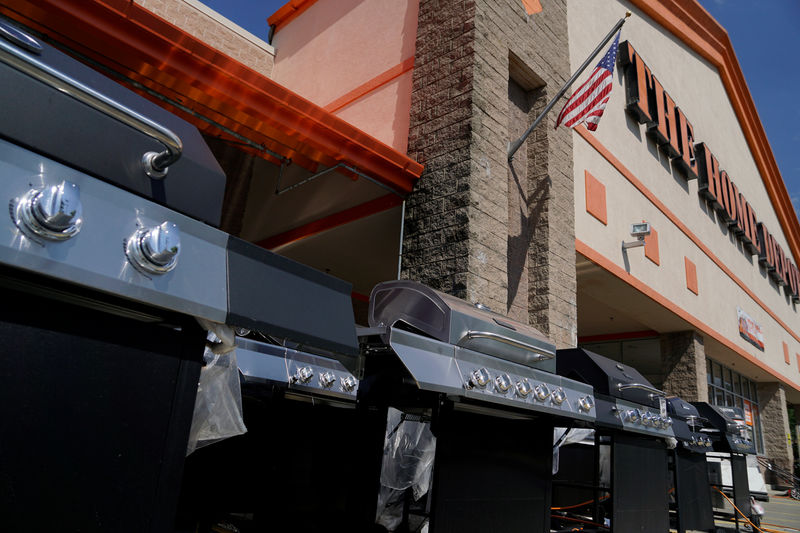By Jonas Ekblom and Barbara Smith
WASHINGTON/CHICAGO (Reuters) - U.S. consumers likely paid more for grills to cook their Independence Day hot dogs and burgers this year because of the U.S.-China trade war, but they will find some consolation in less costly meat for cookouts as tariffs curb U.S. exports.
The tit-for-tat tariff fight between the world's two largest economies started by U.S. President Donald Trump a year ago has U.S. companies facing higher costs for metals and components, while U.S. agricultural exports to China have fallen off.
Grill manufacturers such as RH Peterson Co, which owns high-end brands Fire Magic Grills and American Outdoor Grill, said they were struggling with higher prices for raw materials like steel as well as Chinese-made components of their products. "It's something that has been very harmful for our operations," said Joe Valencia, purchasing manager at RH Peterson.
While the company absorbed some of the costs, it has raised prices on grills by almost 10% this year - more than the normal seasonal increase of 1% to 4% each summer, said Jerry Scott, senior vice president of sales.
Fourth of July meats are bountiful in U.S. grocery stores after U.S. farmers increased production and trade disputes limited some exports.
At a Kroger (NYSE:KR) Co-owned Mariano's grocery store in Chicago, customers enjoyed "Buy one, get one free" steak specials and $3.99 burgers this week.
"I actually did notice that meat was cheaper this year," said Donald Denna, a Mariano's customer. "We normally cook chicken on the Fourth of July, but this year I got steak."
Lean ground beef used in hamburgers costs $4.52, down from $4.65 last year, according to the U.S. Department of Agriculture. Boneless New York strip steak costs $8.64 a pound, down from $9.75 a year ago.
"Ongoing trade disputes that constrain market access and/or result in elevated tariffs ultimately reduce the volume and value of U.S. meat exports," said Glynn Tonsor, an agricultural economist at Kansas State University.
Pork spareribs for the grill cost $2.07 a pound, up slightly from $2.04 a year ago. Pork prices have increased as an outbreak of a fatal hog disease in China has fueled expectations for increased U.S. exports by companies such as Tyson Foods Inc (NYSE:TSN) despite a 62% tariff on U.S. pork in China.
COULD HAVE BEEN WORSE
U.S. pork exports to China and Hong Kong, the No. 2 buyers of U.S. pork before the trade war, were down 16% this year through April and also fell to top-buyer Mexico as the Trump administration renegotiated the North American Free Trade Agreement, according to the U.S. Meat Export Federation.
Beef exports to China fell 34% to 30,242 metric tons. China is not a major buyer of U.S. beef but imposed a 25% retaliatory tariff on imports last year. Large U.S. supplies of beef and pork are keeping a lid on chicken prices too.
The trade war has roiled global markets, with varying consequences for consumers. Futures prices for Midwest hot-rolled coil steel,, one type of metal used in grills, have fallen this week to $525, below record highs from May 2018 when Trump applied broad tariffs on global steel imports but well above their five-year low of $364 in December 2015.
It could have been worse. The U.S. government recently postponed the introduction of tariffs on $300 billion worth of products, a list that included all Chinese-made grills, after Trump and Chinese President Xi Jinping met in Japan last month. Of the grills sold in the United States, 90% are imported and most larger chains such as Home Depot Inc (NYSE:HD) and Lowe's Companies Inc buy their products straight from Chinese suppliers.

Another piece of good news - fireworks, a July 4 staple, were also included on the list of Chinese products slated to have 25% tariffs levied on them in July. But those tariffs were also postponed.